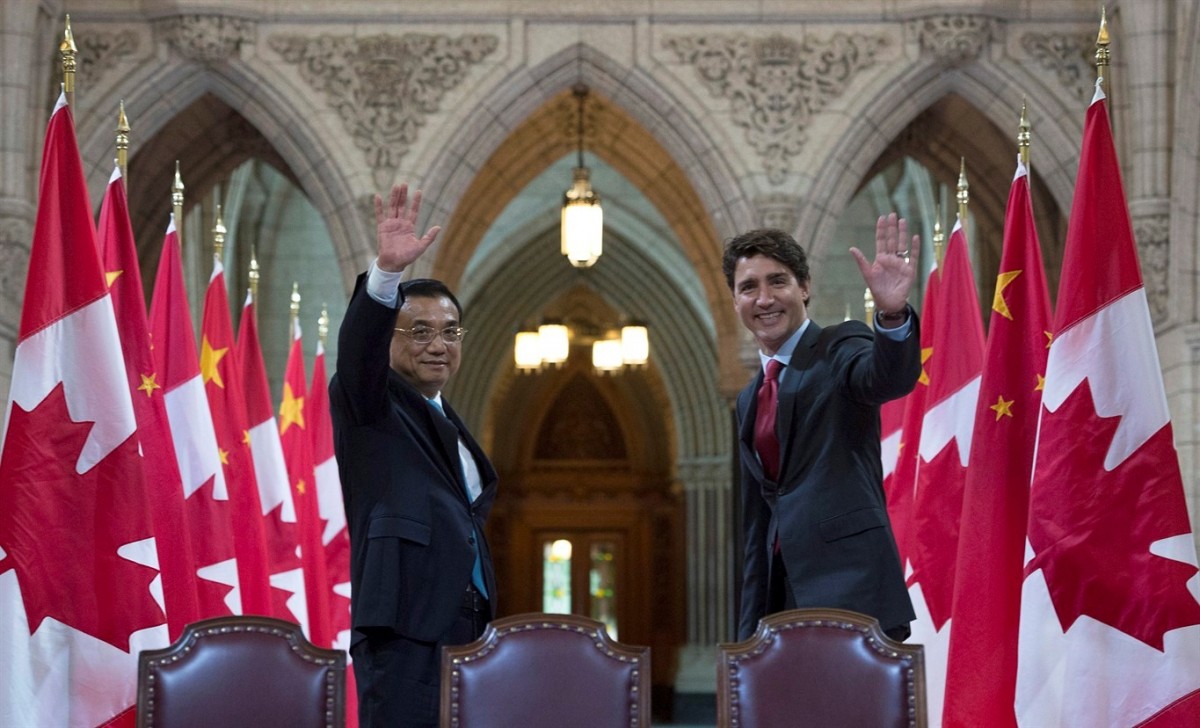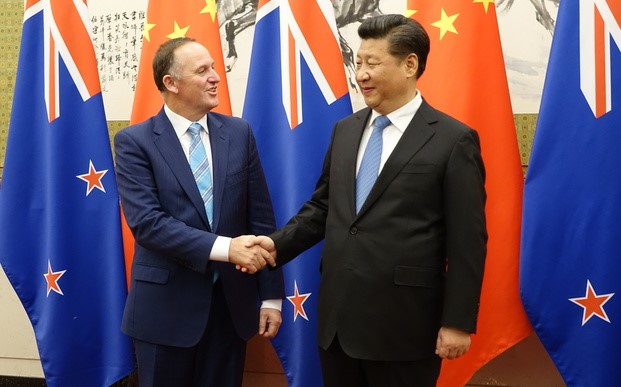Memo #381
By: Charles Burton – cburton [at] brocku.ca and Stephen Noakes – s.noakes [at] auckland.ac.nz
What explains the absence of a Canada-China free trade agreement?

 From China’s perspective the benefits of free trade with Canada are clear: increasing its market share in Canada, locking Canada in as a reliable supplier of the energy, mineral and agricultural resources necessary to sustain Chinese economic expansion, and encouraging Canada to move away from its dependence on the U.S.A. to a geopolitical position more favourable to China’s longer term power ambitions.
From China’s perspective the benefits of free trade with Canada are clear: increasing its market share in Canada, locking Canada in as a reliable supplier of the energy, mineral and agricultural resources necessary to sustain Chinese economic expansion, and encouraging Canada to move away from its dependence on the U.S.A. to a geopolitical position more favourable to China’s longer term power ambitions.
For Canada, breaking down barriers to access to China’s growing market for Canadian goods and services through free trade and thereby dramatically grow Canadian prosperity is an alluring proposition.
New Zealand, like Canada, a nation whose economy is strongly tied to a much larger neighbouring country. Both are nations are of Anglo-Saxon heritage with similar commitment to human rights and security-related concerns. Both primarily export raw materials and agricultural products.
But New Zealand successfully negotiated a free trade agreement with China in 2008 with significant economic benefits to both sides. China is now the second largest market for New Zealand products after Australia.
In contrast, prospects for successful negotiation of a Canada-China free trade agreement remain dim. There are meaningful parallels to Canada’s historic resistance to economic engagement with the United States. The opponents of negotiation of free trade with China expound a narrative that implies that Canadian culture and political values are too weak to sustain asymmetrical economic and concomitant asymmetrical political engagement with major powers. Sociotropic effects—fine-grained beliefs about how a Canada-China FTA could produce negative effects for Canada as a whole—play a significant role in explaining the absence of an FTA in the Canadian case.
While in New Zealand these sociotropic factors were largely absent, despite isolated opposition from a handful of politicians, in Canada, enhanced economic relations with China are opposed by a coalition of leftist nationalists including the Council of Canadians and the Green Party, rightist social conservatives with strong aversion to any truck with Chinese Communism, and a broad swath of the Canadian public who have deeply felt concerns over China’s human rights and environmental record.
What has worked well for China in New Zealand may not be possible in Canada – unless the domestic political landscape undergoes a massive realignment.
About the Authors:
Charles Burton is an associate professor in the Department of Political Science at Brock University, Canada.
Stephen Noakes is lecturer in Chinese politics and foreign policy at the University of Auckland, New Zealand.

Canadian Prime Minister Justin Trudeau and Chinese Premier Li Keqiang in Ottawa, September 22, 2016. (Credit: Adrian Wyld/ The Canadian Press via Macleans)

In April 2016, New Zealand Prime Minister John Key and Chinese President Xi Jinping met in Beijing to discuss free trade. (Credit: Rnz/ Demelza Leslie)
Links
- Charles Burton and Stephen Noakes, “Forging Free Trade with China: The Maple Leaf and the Silver Fern,” Pacific Affairs 89, no. 4 (December 2016), forthcoming issue.
- John Whalley, “Why Do Countries Seek Regional Trade Agreements?” in Jeffrey A. Frankel, Ed., The Regionalization of the World Economy, Jeffrey A. Frankel, ed., (Chicago: University of Chicago Press, 1998), pp. 70–74.
- Klas Rönnbäck, “Interest-group lobbying for free trade: An empirical case study of international trade policy formation,” Journal of International Trade & Economic Development 24, no. 2 (2015): 281–293.
- Megumi Naoi and Shujiro Urata, “Free Trade Agreements and Domestic Politics: The Case of the Trans-Pacific Partnership Agreement,” Asian Economic Policy Review 8, no. 3 (2013): 326–-349
- Luo Zhaohui, “China’s Economy Is Transforming Itself: Ambassador Zhaohui,” IPolitics, 19 November 2015.
- Robert Fife, “China Open to Historic Free-Trade Deal with Canada under Certain Provisos,” The Globe and Mail, 14 January 2016.
- Charles Burton, “Trade with China never comes free,” The Globe and Mail, 2 June 2016.
- Government of Canada, Department of Foreign Affairs and International Trade, Canada-China Economic Complementarities Study, 15 August 2012.
Related Memos:
See our other memos on Canada, China and New Zealand.